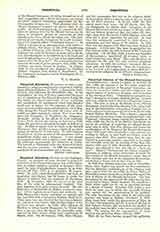

Perpetual Adorers of the Blessed Sacrament (SACRAMENTINES).—Anton Le Quien, b. in Paris, February 23, 1601, the founder of the first order exclusively devoted to the practice of Perpetual Adoration, entered the Dominican Order, and after ordination was named master of novices at Avignon, and later prior of the convent at Paris. “During the seventeenth century”, we read in his works, edited by Potton, “we find only two religious orders that have Perpetual Adoration. The first is that of the Sisters of the Blessed Sacrament, founded by Père Antoine, O.P.; the second that of the Benedictine Adoratrices, founded first at Paris and afterwards in several other cities, by the celebrated Mother Mechtilde. This religious, supported by powerful protectors, easily accomplished her task. Perpetual Adoration began among her daughters in 1654, while the Sisters of the Blessed Sacrament received the privilege of reserving the Blessed Sacrament only in 1659. But Père Antoine had begun the establishment of the Sisters of the Blessed Sacrament about 1639, while Mère Mechtilde’s work appears, according to Helyot, to date back no further, even in project, than 1651. Père Antoine may, then, be considered as possessing priority, especially as his order was intended solely for the worship of the Holy Eucharist, while that of Mere Mechtilde, although in existence, was adapted to that end only at a later period”. Migne’s “Dictionnaire des Ordres religieux” mentions no religious order exclusively destined for the worship of the Blessed Sacrament, except that of Père Antoine, and that of the Adoration Réparatrice, established in France for the first time in 1848.
In 1639 Père Antoine began his work at Marseilles. Sister Anne Negrel was named the first superioress. But the definitive establishment of the religious took place only in 1659-60, when Msgr. de Puget, Bishop of Marseilles, erected them into a congregation under the title of Sisters of the Blessed Sacrament. The final formalities for the approval of the order having been concluded in Rome (1680), Innocent XI expedited a Brief, which could not be put in execution because of a change of bishop. Innocent XII issued a new Brief the same year in which the Apostolic Process was opened for the canonization of its founder. The only foundation of the order in the eighteenth century was made at Bollène (Vaucluse) in 1725. Sixty years later, under the government of Mère de
La Fare, this monastery had the honor of offering to God thirteen victims, who succeeded one another on the scaffold, from the fifth to the twenty-sixth of July, 1794. The process for the canonization of these martyrs was opened at Rome, January, 1907.
Mère de La Fare, having escaped the guillotine, gathered together her community in 1802, and made a foundation at Avignon in 1807. The same year a Sacramentine of Marseilles founded a convent at Aix-en-Provence. In 1816 the convent of Marseilles was reopened, and Mère de La Fare made a new foundation at Carpentras. In 1859 six religious of Aix founded a house at Bernay, Normandy, and in 1863 some Sisters from Bollène founded a convent of Perpetual Adoration at Taunton, England. Oxford also has a foundation. All the houses of this order are autonomous and dependent on the ordinary of the diocese, who is their superior. In consequence of the persecution of religious congregations in France, the Sacramentines of Marseilles were obliged to abandon their convent. The four other houses of Southern France, being authorized by the Government, still subsist, though their boarding-school is closed. The Sacramentines of Bernay at the time of the expulsion, July, 1903, were compelled to close their boarding-school and go into exile. Thirteen of the sisters retired to Belgium, and founded a house at Hal. The rest of the community settled in England at Whitson Court, New-port, Monmouthshire. Their existence is precarious, for they are not permitted to open a school. Their days are spent in prayer, adoration, and the making of altar-breads, vestments, and church ornaments. In March, 1911, the Sacramentines were permitted by Archbishop Farley to open a house in Holy Trinity parish, Yonkers, New York.
A. LETELLIER

